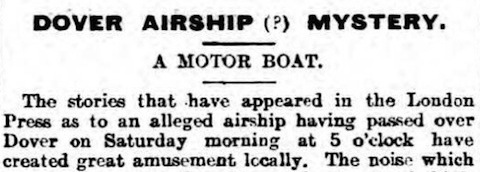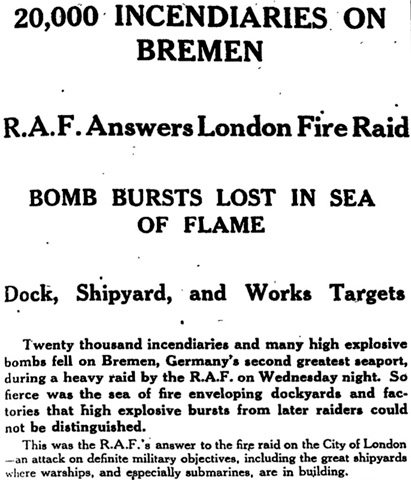Only recycled news today: the Yeovil Western Gazette, p. 2, and the Cambridge Independent Press, p. 5, reprint the paragraph about the Cardiff airship which circulated widely on Tuesday, while the Exeter Western Times, p. 11, reprints its own article on the Bristol lights from yesterday.
The Standard has a follow-up to the letter about lights in India it published over a week ago. A correspondence seems to have developed. Lewis Rice of Harrow writes in response to a Colonel Tillard’s account (unseen) of ‘the Nundy lights’, ‘the lights which are seen from the fine old fortress of Nundydroog in the Mysore State’, p. 13:
After the first heavy fall of rain in the storms which precede the burst of the monsoon, these lights appear in the plains below, often stretching out in long lines like the street lamps of a city. The superstitious call them ‘corpse candles‘ and other names. But they can be accounted for in a very matter-of-fact way.
Rice explains that the lights appear during the mating (or ‘pairing’) season of a species of termite, though these are not their direct cause. Rather it seems that the termites are a local delicacy, and it’s the method used to trap them which is the explanation:
The lower orders of the villagers are not behindhand in their appreciation of the delicate morsels, and, in order to gratify their taste, form shallow basins of the earth round the white ant nests, in which they fix a branch of inferior sugar-cane and set it alight. The insects, allured by the light, fall in shoals into the basins, where they are retained by a sort of hencoop. In the morning the fragrant heaps are gathered up and roasted, to be eaten as curry. Such is the explanation of the Nundy lights.
Perhaps, though termite traps are probably not the solution to the present British airship mystery.
![]() This work is licensed under a Creative Commons Attribution-NonCommercial-NoDerivatives 4.0 International License.
Permissions beyond the scope of this license may be available at http://airminded.org/copyright/.
This work is licensed under a Creative Commons Attribution-NonCommercial-NoDerivatives 4.0 International License.
Permissions beyond the scope of this license may be available at http://airminded.org/copyright/.





Pingback: Tuesday, 28 January 1913
Tillard, G. H. (1913, January 17). Moving lights. The London Standard, 14
Perhaps George Henry Tillard (1840-c.1915), retired Colonel
Yes, I think it’s likely, especially since he served in India.